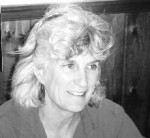Faculty Column
Contrary to depicitions of the 60s as an era of general student discontent and protest, few of my friends and classmates who were eligible to be drafted to serve in Vietnam took much notice of the political situation that began and perpetuated that war. So a few years later when the war was over and I began to teach college students, I was not overly dismayed that they lacked much sense of how politics affected their lives and how they could in turn, if they organized, affect political decisions.
However, not long after I got to Castleton a new administration, helmed, as many faculty saw it, by an incarnation of Attila the Hun, began to change the nature of the college. (e.g. he attempted to limit tenure, the result of which, he told me at a public meeting, would be that no matter how hard I tried or how much I succeeded I would be gone in five years.) While many of us faculty responded as well as we could individually and through our union, it seemed we had little useful support.
So I was both surprised and delighted when a group of students, many in my own program, began to take interest. They investigated the college and system’s problems, they wrote persuasively in the Spartan and spoke on WIUV, some talked to their home legislators, and finally, they organized rallies and protests. While I encourgaged them to an extent-I thought it was great that they were taking a stand–I gave them my opinion only when asked. I felt it was not my role to try to get them to think as I did. Turns out they thought that way anyhow.
And it turns out that , while faculty took something of a beating, a combined effort of faculty, supporters, and concerned students helped us keep most of the personal attention to teaching we loved about Castleton. One of our losses, though, was the termination of a popular, and to most students and faculty excellent, second year communication teacher. At a hearing on the grievance he filed, one of the student activists, by then a reporter for the Rutland Herald, told me the college president had used me as an example that he was not pressing a political agenda in firing the teacher. He didn’t fire Gershon, he said, and he organized all those protests. My former student said, had he not been a reporter, he would have stood up and yelled, “he’s lying! I organized those protests!”
I’m still in touch with many of those early protesters. The reporter went on to be an assistant city editor at the Boston Globe, others have become active citizens in their own communities from Boston to California. I think they look back on their time at Castleton as one where they learned more than they’d expected. They found out that they had a voice and that voice counted.






